Intervention Cardiology

Intervention Cardiology Services
Heart ailments such as coronary artery disease, vascular disease, structural heart disease, and congenital heart defects require specialized catheter-based techniques. Interventional cardiology is a subspecialty of cardiology that diagnoses and treats these heart diseases and uses different diagnostic and imaging techniques to measure blood pressure and blood flow in the body’s major arteries and within the heart. Interventional cardiologists perform many types of tests and procedures on people of all ages.
Interventional cardiologists are cardiology subspecialists who are trained to place stents in clogged arteries to allow blood to flow properly and reduce risk of stroke or heart attack, as well as to repair holes in the heart or place special devices in the heart to help it function properly.
Our department’s ongoing advancements in interventional cardiology help to improve therapeutic care and provide far more accurate diagnosis of ailments to all of our fragile, at-risk patients.

Our Expertise
Coronary Angiography & Stenting
A coronary angiography takes an x-ray of blood vessels to check if there’s any restriction in the blood flowing to the heart. A dye is injected into the blood vessels that become visible during the x-ray. The machine takes a series of images rapidly to take a look at the blood vessels. This procedure helps detect blocks and clogs in the vessels.Coronary Angioplasty & Stenting
When the arteries are blocked, coronary angioplasty has to be performed to avoid coronary heart disease. A coronary angioplasty is a procedure used to widen blocked or narrowed coronary arteries.
Angioplasty is of two kinds, one with the insertion of a balloon that opens up inside to create space for the blood to flow. The second is with the use of a small mesh wire called a ‘stent’. A stent is most commonly used in angioplasty these days.
Permanent Pacemaker Installation
Permanent Pacemaker Installation entails the implantation of a small electronic device placed in the chest to help regulate the slow electrical problems in the heart. Pacemakers may be recommended to correct a chronic and dangerously slow heartbeat.
AICD Implantation
An Automatic Implantable Cardioverter Defibrillator, (AICD), is a small electronic device that is implanted into the chest to monitor and correct an abnormal heart rhythm, or arrhythmia. AICDs are used to treat serious and life-threatening arrhythmias in the most effective manner.
Defibrillators treat arrhythmias in two ways:
- one in which the device tries to stop the abnormal rhythm with a burst of high-speed pacing (cardioversion).
- If that doesn’t work, then the device delivers an electrical shock to the heart to reset its rhythm.
Patients are usually not aware of cardioversion and almost always aware of defibrillation. It is also capable of collecting and storing information about the heart’s electrical activity for the cardiologist to check.
Other Facilities

01
Device closure (ASD/PDA)

02
Non invasive Ventilation

03
Echocardiography

04
Holter
Monitoring
Dr. Anju Sarda

Dr. Jayesh Timane

Dr. Anuj Sarda
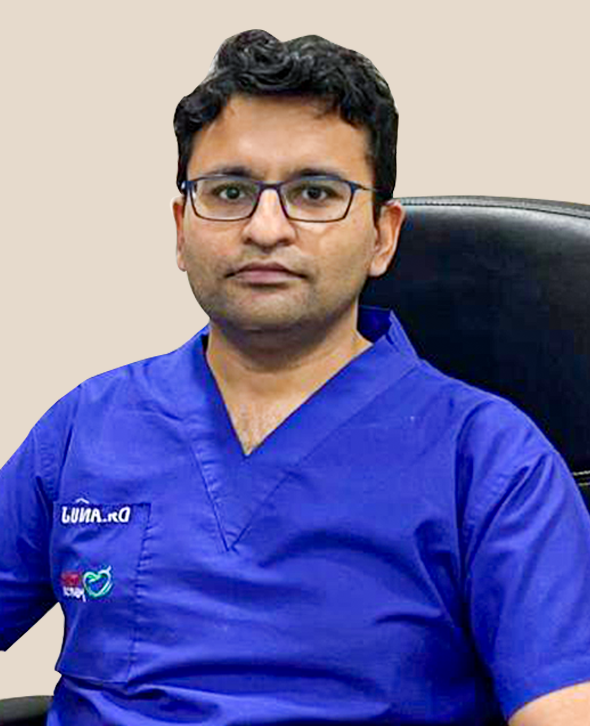
Why Choose Us?
We provide complete heart care services from preventive heart checks to Emergency Angioplasties, to Advanced Heart surgeries right in your neighborhood. We have the most reliable and dedicated Cardiovascular team that provides the compassionate care to every patient.
Latest Equipment
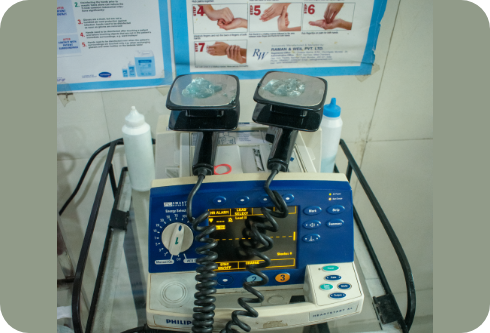
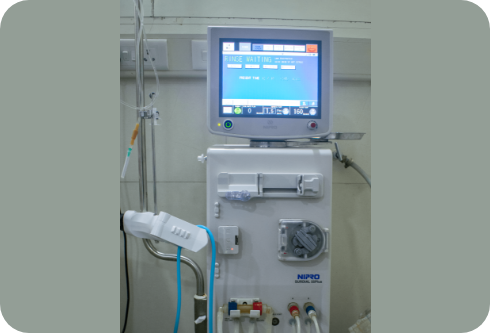


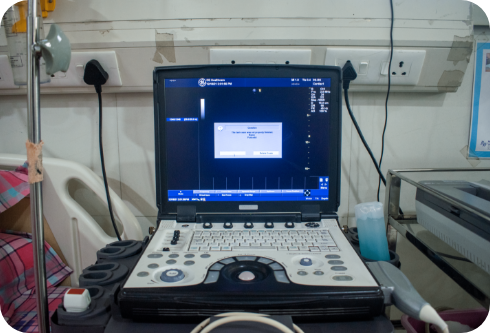
Our Certification
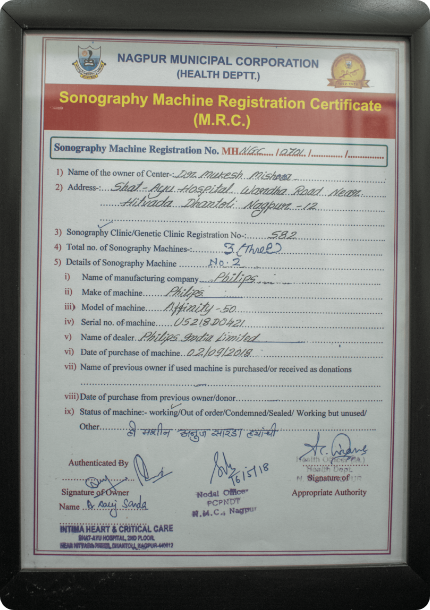
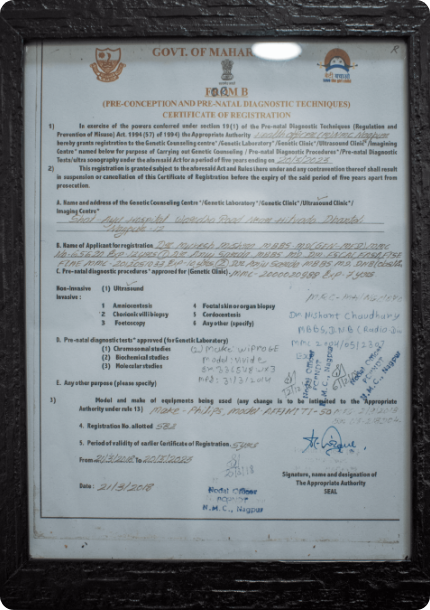



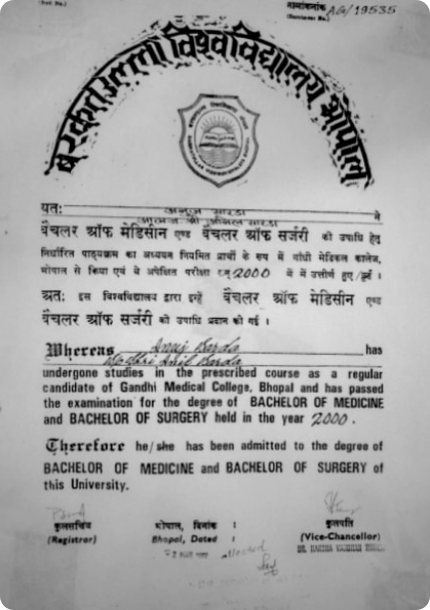
Frequently asked questions
An angiogram is a diagnostic test in which a catheter is inserted through an artery (usually in the leg) and guided using an X-ray to the base of the heart. A dye is then injected to look for blockages in the heart (coronary) arteries.
An angioplasty is a procedure that involves using a device to open a blocked coronary artery. Often, a balloon and a stent are used.
Patients Stories

Owing to my age, I visit Dr. Anuj regularly to keep a check on my heart health. Dr. Anuj is always warm, kind, and welcoming. He is attentive to problems and addresses individual concerns patiently. Dr. Anuj’s approach towards patients and towards his profession has kept me going to him for years and recommending others to do so too.
Vaibhav D

I got my Angioplasty done by Dr. Sarda. Although I was initially reluctant, Dr. Sarda was kind enough to take time out of his schedule to make me understand the gravity of the matter and why it was necessary to undergo the procedure. Having spoken to him, I felt much relieved and confident to undergo the surgery. The surgery went smoothly and I was back on my feet hale and hearty in no time.
Ganesh G

When I came to Dr. Anuj with chest pain, Dr. Anuj was quick to react but cautious not to cause panic. I was said to have had a mild attack and was admitted to the hospital for a week for observation. Dr. Sarda helped me understand the cause of the attack, what I needed to bring changes in, and how to take care of myself after discharge. While I was at the hospital, he visited me regularly, ensured that I remained positive, and didn’t over-exert myself.
Arun P

Experiencing breathlessness at an odd hour can be alarming and scary. When it happened to me, I immediately rushed to the hospital. The doctors at Intima were quick to respond and provide treatment. They wasted no time and immediately admitted me. The agility and sincerity of the doctors and nurses have remained with me since. Now when I think of an emergency, I’m comforted by the fact that there is a place to go that will react immediately and save my life.
Manav R
We are just a call away
Facing an issue or just want a regular check-up? We’re right around the corner.
Make an Appointment
9607735350
Emergency No.
0712-2457000


